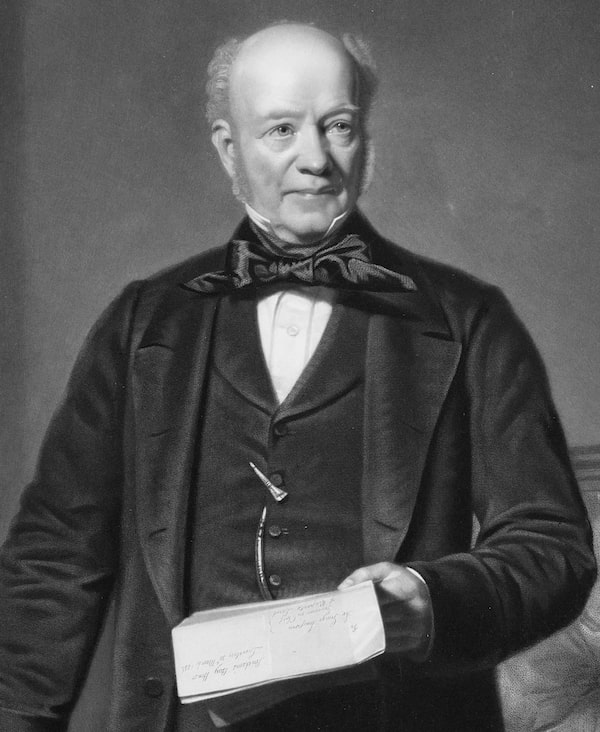Good morning,
Minh Doan, Canada’s chief technology officer and a central figure in hearings related to the ArriveCan app and contracting misconduct allegations, took unusual steps that led to the permanent destruction of e-mails and other documents, according to an internal complaint by a Canada Border Services Agency IT employee obtained by The Globe and Mail.
According to an internal complaint filed by a CBSA IT employee and obtained by The Globe and Mail, Mr. Doan is accused of moving data files around in a way that led to the permanent destruction of e-mails and other documents that may have been relevant to an access to information request about the agency’s interactions with GCStrategies. The private two-person IT staffing company has received more than $59-million in federal contract work since 2017.
Doan strongly denies the claim, saying no e-mails were destroyed and the allegations against him appear to be part of an effort by others in government to try to falsely pin blame on him for their own actions. He denies any wrongdoing.
Read more:

A person holds a smartphone set to the opening screen of the ArriveCan app in a photo illustration made in Toronto on June 29, 2022.Giordano Ciampini/The Canadian Press
This is the daily Morning Update newsletter. If you’re reading this on the web, or it was forwarded to you from someone else, you can sign up for Morning Update and more than 20 other Globe newsletters on our newsletter sign-up page.
Ontario colleges accuse Ottawa of creating ‘chaos’ for international students with new cap
Ontario’s publicly funded colleges say federal study permit changes have resulted in applications being returned to students abroad without explanation and are causing chaos for perspective international students.
Marketa Evans, the president of Colleges Ontario, an association of the province’s 24 public colleges, said the federal government’s new cap on the number of study permits for international students, announced earlier this week, has already resulted in applications being returned to students abroad without explanation. This, she said, had left them unsure whether they will be able to study in Canada.
Ms. Evans was sharply critical of the government’s decision. She called it rushed, and said it had been made without consultation. Ontario’s public colleges host a large proportion of Canada’s international students. They accounted about 40 per cent of study permits issued in 2022. Many of these schools rely on the fees foreign students pay, which are much higher than domestic tuition.
Read more:
- Ottawa to ensure international student cap doesn’t target francophones
- Beyond international students: The other problem with Canada’s private education industry
Students and pedestrians are photographed walking along Gould St. on the Toronto Metropolitan University campus on Jan. 22, 2024.Fred Lum/The Globe and Mail
Ukraine and Russia trade accusations over fatal plane crash that Moscow says involved Ukrainian POWs
Ukrainian officials have asked for patience from citizens while they investigate Moscow’s claims that Ukraine had shot down a Russian military aircraft that killed 65 Ukrainian prisoners of war on-board, pressing their efforts to uncover the details of the deadly plane crash over the border in Russia.
President Volodymyr Zelensky of Ukraine called for his country’s intelligence agency to determine what had happened and for an international investigation into the crash, while also accusing Russia of engaging in wartime propaganda over the episode.
The crash, and Russia’s claims that Ukraine had downed a plane with its own soldiers aboard, poses a vexing challenge for a government in Kyiv trying to brace its citizens for a third year of war. Ukraine is on the defensive on the battlefield and contemplating a new mobilization that would likely be domestically unpopular, while striving daily to shore up critically needed Western support. The cause of the crash remains unknown.
Got a news tip that you’d like us to look into? E-mail us at tips@globeandmail.com Need to share documents securely? Reach out via SecureDrop.
Also on our radar
U.S. sets up channel with Israel seeking answers on civilian casualties: The United States has created a channel with Israel to discuss concerns over incidents in Gaza in which civilians have been killed or injured by the Israeli military and civilian facilities have been targeted, two U.S. officials told Reuters. Meanwhile, UN judges in The Hague will rule on Friday whether to order Israel to suspend its military campaign in Gaza as officials push ahead with efforts to negotiate a new deal for a ceasefire and release of more Israeli hostages.
Art Gallery of Ontario’s associate curator of Indigenous art, Taqralik Partridge, departs: The Art Gallery of Ontario has lost another Indigenous curator, as Taqralik Partridge, its associate curator of Indigenous art who focused on Inuit art, has quietly departed the institution. Her departure follows the exit of the gallery’s inaugural curator of Indigenous art Wanda Nanibush last fall.
U.K. suspends trade negotiations with Canada, as each accuse the other of not budging: Britain is hitting the brakes on trade talks with Canada after Ottawa decided not to extend temporary measures put in place after Brexit.
AIMCo looking to invest in Trans Mountain pipeline as expansion project nears end: Alberta Investment Management Corp. has its eye on the Trans Mountain pipeline as a potential investment, with the expansion project creeping closer to completion.
At Gildan Activewear, a billion-dollar reason why shareholders want CEO back: Former Gildan Activewear chief executive Glenn Chamandy has sold or given away about $1-billion of Gildan stock over the past 25 years, according to a Globe and Mail analysis of company documents and his trading records.
BlackBerry shares slump to two-decade low on debt refinancing intended to offer breathing room: A debt refinancing designed to provide BlackBerry Ltd. with some financial flexibility ultimately sent the company’s shares tumbling to their lowest level in 21 years, complicating the new chief executive’s plans to win back investors.
The federal government made headlines this week when it announced it would temporarily cap the number of student visas it will hand out. How many international students now live in Canada?
A) More than 250,000
B) More than 500,000
C) More than 750,000
D) More than 1 million
Morning markets
European stocks advance: Europe’s stock markets were heading for their best week of the year so far and oil was on track for its strongest performance since October on Friday as traders ratcheted up bets that interest rates in major economies will soon be heading down. Around 5:30 a.m. ET, Britain’s FTSE 100 was up 1.19 per cent. Germany’s DAX gained 0.06 per cent while France’s CAC 40 advanced 2.04 per cent. In Asia, Japan’s Nikkei lost 1.34 per cent. Hong Kong’s Hang Seng fell 1.6 per cent. New York futures were negative. The Canadian dollar was higher at 74.33 US cents.
What everyone’s talking about
Putin uses Stalin’s playbook to prepare Russia for a permanent state of war
“Today’s Russia is nothing like the citadel of stability and satisfaction that the Kremlin claims it to be. Though Russian GDP grew by more than 3 per cent in 2023, despite Western sanctions, this hardly reflects genuine, let alone sustainable, economic dynamism.” – Nina L. Khrushcheva
A reckoning is coming with the junior hockey sexual-assault scandal
“While disturbing to read, it’s important to recall what the young woman, who was 20 at the time, said happened. In the claim, which has not been tested in court, the woman – who conceded she was inebriated – vividly recalled being forced to engage in oral and vaginal sex with several men. She says she was spat on. While crying and attempting to leave the room, she was forced to stay. She says she felt she had to say things on video intended to exonerate the players from any wrongdoing – to say that it was all consensual. Horrifying.” – Gary Mason
Today’s editorial cartoon

Illustration by David Parkins
Living better
Cakes baked with fruit on the bottom that wind up on top (once the cake is inverted onto a plate) date back to a time when they were cooked over open fires in cast iron pans (still the ideal vessel for such desserts, even if you’re baking yours in the oven). The maraschino-studded, sliced-pineapple version we know and love became the headliner at fancy home parties across North America after Dole held a contest in 1925 to promote its products. Mrs. Robert Davis of Norfolk, Va., entered a winning cake, selected from among 60,000 entries (including 2,500 for pineapple upside-down cake) and, the story goes, brought home a US$50 prize.
This year, trend-watching powers have declared tropical flavours will be a popular theme in recipes and on restaurant menus in 2024. Pinterest notes searches for pineapple mocktails are up 70 per cent, while searches for pineapple upside-down cakes are up 50 per cent. At a time when all that is old is becoming new again, a retro pineapple upside-down cake, given a tropical boost with coconut if you like, will feed your craving for both nostalgia and a sunny escape.
Moment in time: Jan. 26, 1820

Library and Archives Canada
George Simpson enters service in Hudson’s Bay Co.
In 1820, Hudson’s Bay Co. handed George Simpson, a London sugar clerk, a lifetime opportunity. Engaged in a bitter commercial war with North West Co. for control of the Canadian fur trade, HBC needed someone to serve as leading officer in North America if other senior officials were prevented from fulfilling their duties. The company chose Simpson because of his business acumen, and on this day, named him acting governor-in-chief of overseas operations. After Simpson’s arrival, the two rival companies merged in 1821. At 29, he was placed in charge of the sprawling northern department. Simpson ran the territory as if it was his own fiefdom and he was the English lord who presided over every operational detail, no matter how trivial. Indeed, the diminutive Simpson would become known as the “little emperor.” During his almost 40-year tenure, the company enjoyed the most rewarding period of prosperity in its corporate history. But Simpson’s heavy-handed regulation of the trade, including the introduction of a number of rigorous efficiencies, never considered the interests or well-being of the Indigenous peoples of the region. Bill Waiser.
Enjoy today's horoscopes. Solve today's puzzles. Read today's Letters to the Editor.
If you’d like to receive this newsletter by e-mail every weekday morning, go here to sign up. If you have any feedback, send us a note.